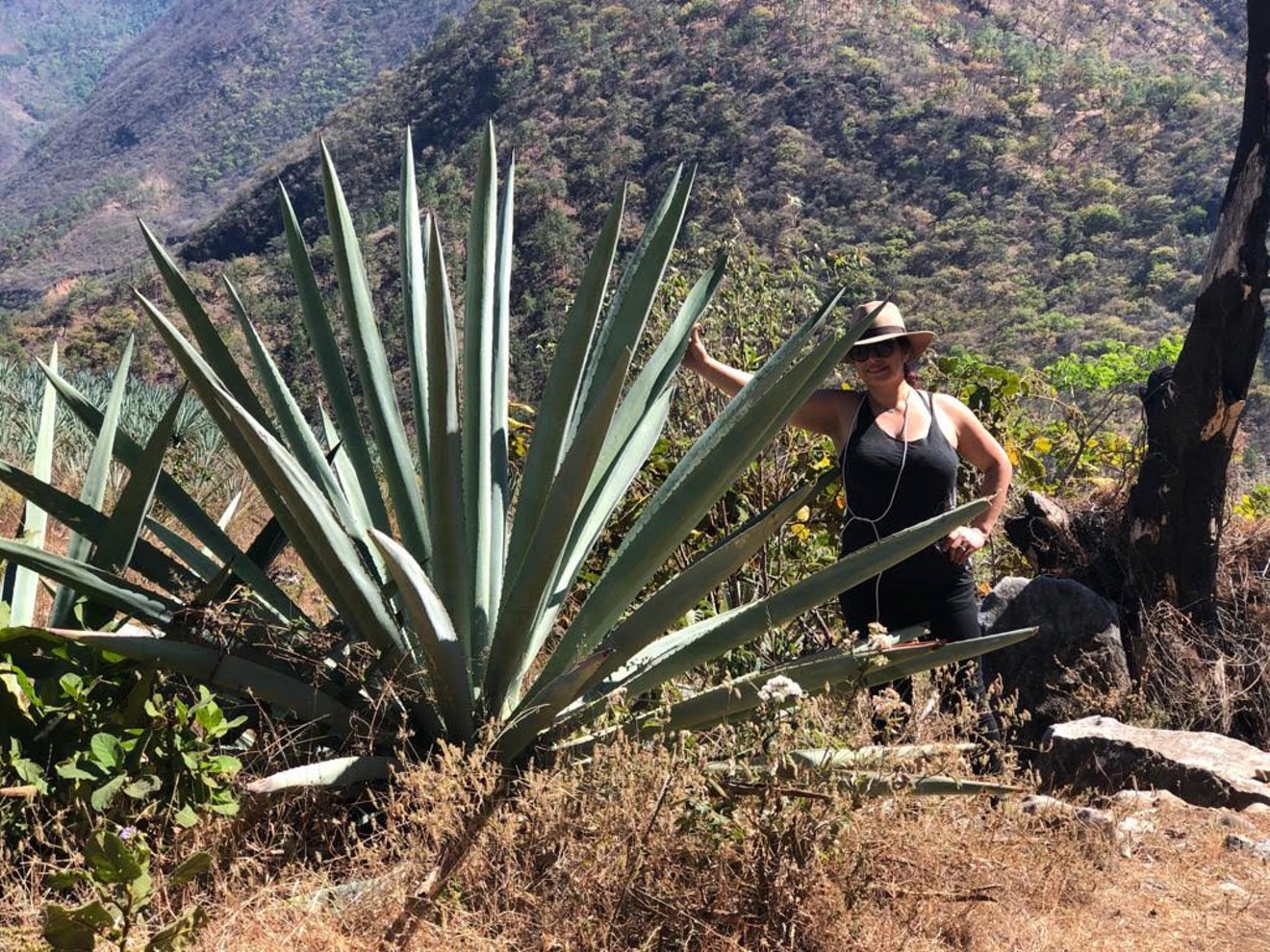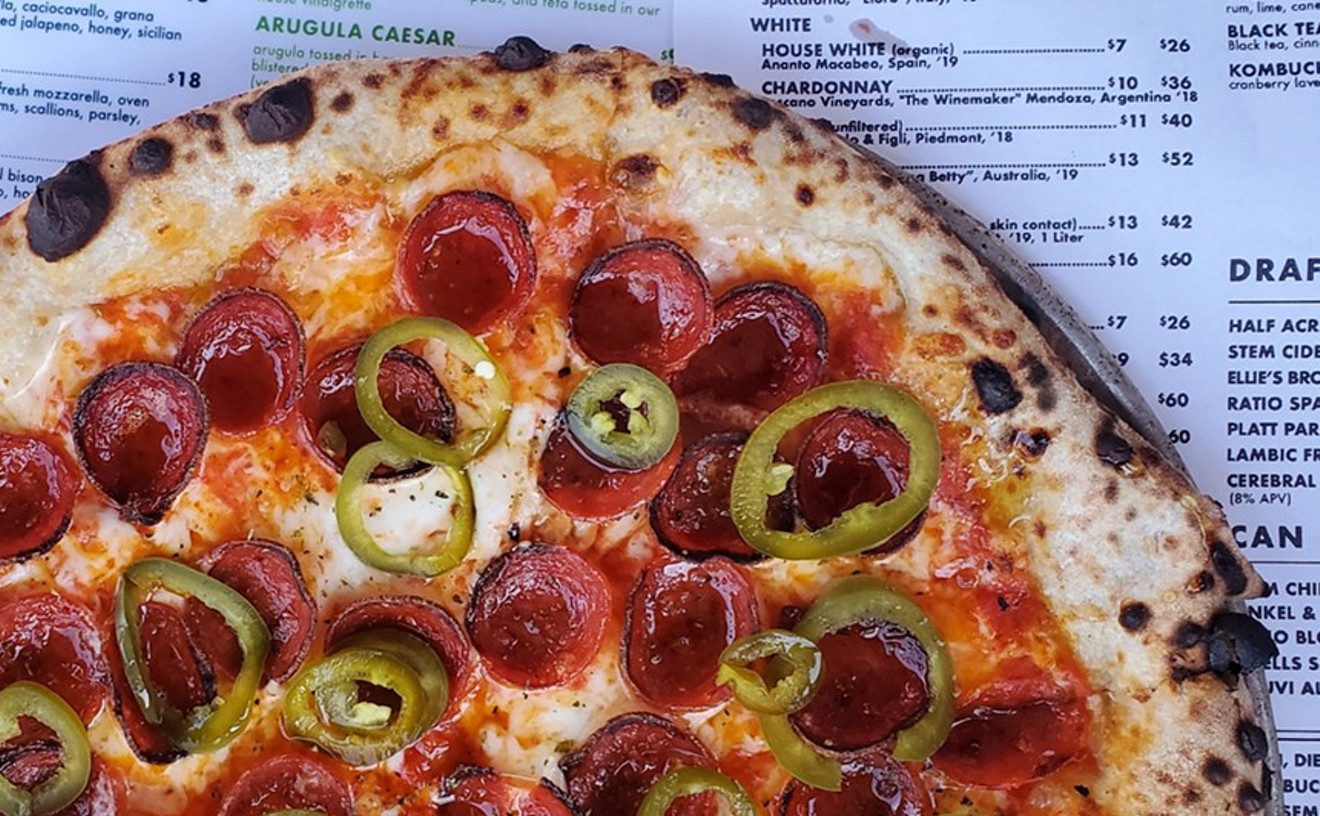Leaving Work & Class or its younger sibling, Super Mega Bien, without drinking mezcal or tequila is nearly impossible; the Mexican spirits are just part of the culture at the two lively eateries run by Dana Rodriguez, Tony Maciag and Tabatha Knop. And soon, you'll be able to sip something truly special: Rodriguez is launching her own mezcal and tequila brand.
Rodriguez, the chef behind both restaurants, has been traveling to Oaxaca, Mexico, for the past year to visit palenques (as mezcal distilleries are called) in rural mountain towns outside the state's capital city. Her goal is to partner with growers and producers committed to traditional, sustainable farming and distilling practices.
"I go there to taste everything first," Rodriguez explains. "First for the flavor, and also to make sure the distiller is paying everyone fairly."
The production of mezcal involves harvesting wild maguey (or agave) that often takes more than a decade to reach maturity, or growing some maguey species that do well as a crop (though these grow very slowly, too). Making the spirit requires roasting the agave hearts (called piñas), fermenting them naturally (yeast is rarely added, since the native Oaxacan microflora is quite vigorous) and distilling the resulting liquid twice in stills made from clay or copper.
Each of these steps is important to Rodriguez because she wants to help support the communities of the villages where the mezcal is made, as well as the farmers and the land itself. Gathering wild maguey must be done carefully to avoid over-harvesting, and growing the plants requires rotational farming and companion planting to keep the soil in good shape. "Sometimes there are squash, corn and beans in the same fields as the agave — and you can taste it in the mezcal," she notes.
Her mezcal brand is Doña Loca (Rodriguez earned the nickname "Loca" while coming up through Denver restaurant kitchens), and the tequila will be called Dígame (which means "Tell me"). While tequila production differs a little from that of mezcal, Rodriguez paid the same attention to low-impact farming and traditional production, avoiding places that use diffusers, additives and industrial methods to increase production and mask inferior products. "The tequila is 100 percent organic," she says, adding that the blue agave for her spirit is grown near avocado, eucalyptus and lime trees, providing a diverse farming environment and adding to the terroir. Even the donkey that pulls the giant stone grinding wheel (called a tahona) eats locally grown bananas while he works.
At Super Mega Bien, Rodriguez pours samples of the three mezcal styles she'll soon be importing. Each is named for the variety of agave used to make it. Espadín is the most common, because it's the easiest to farm. Her espadín mezcal is peppery and smoky, with a light, fruity quality. The spirit is as clear as water, but there's also a barrel-aged version tinted pale gold, its natural flavors muted slightly by the vanilla and tannin of the oak.
Rarer is the tepeztate, which the chef likens to fernet for its bold herbal qualities. It's much subtler than fernet, though — almost like gin, but with a minerality that comes from the soil, the stone and the still. Drinkers turned off by mass-produced mezcal might be more drawn to this style, though it generally comes with a slightly higher price tag, since tepeztate is a wild agave.
"Sweet, dry and floral" is how Rodriguez describes the tobalá mezcal, also made with wild maguey. This batch has hints of honeycomb, because bees built a hive between the layers of clay housing the still in which it was made. Such natural occurrences shape the flavor of Oaxaca's premier export, as does the amount of sunshine and rain, the slope of the land and the rocky soil where the plants put down their long roots.
Along with these three mezcals (and the barrel-aged version of the espadín), which Rodriguez expects to be on shelves by the end of summer, the chef and her partners in the business, Scott Kiere and Karen Ashworth-Macfarlane, also plan on bringing in a coffee mezcal (Oaxacan coffee beans are added to the still, providing a light coffee flavor without the color) and a pechuga mezcal. Pechuga is typically made by suspending a raw chicken breast in the still, which gives the spirit a smoothness and silky mouthfeel without adding chicken flavor; Doña Loca's version uses guajolote (the almost-wild turkeys of the region).
Both the mezcal and tequila labels will bear the words "Agua Bendita" — holy water — as an identifier for the brand. That way, Rodriguez can expand into other distilled Mexican spirits like sotol, made in her home state of Chihuahua, while maintaining the company's identity.
With these new products, Rodriguez captures in a bottle the spirit of her two restaurants — as well as a little of her loca soul.
[
{
"name": "Air - MediumRectangle - Inline Content - Mobile Display Size",
"component": "12017618",
"insertPoint": "2",
"requiredCountToDisplay": "2"
},{
"name": "Editor Picks",
"component": "17242653",
"insertPoint": "4",
"requiredCountToDisplay": "1"
},{
"name": "Inline Links",
"component": "18838239",
"insertPoint": "8th",
"startingPoint": 8,
"requiredCountToDisplay": "7",
"maxInsertions": 25
},{
"name": "Air - MediumRectangle - Combo - Inline Content",
"component": "17261320",
"insertPoint": "8th",
"startingPoint": 8,
"requiredCountToDisplay": "7",
"maxInsertions": 25
},{
"name": "Inline Links",
"component": "18838239",
"insertPoint": "8th",
"startingPoint": 12,
"requiredCountToDisplay": "11",
"maxInsertions": 25
},{
"name": "Air - Leaderboard Tower - Combo - Inline Content",
"component": "17261321",
"insertPoint": "8th",
"startingPoint": 12,
"requiredCountToDisplay": "11",
"maxInsertions": 25
}
]















